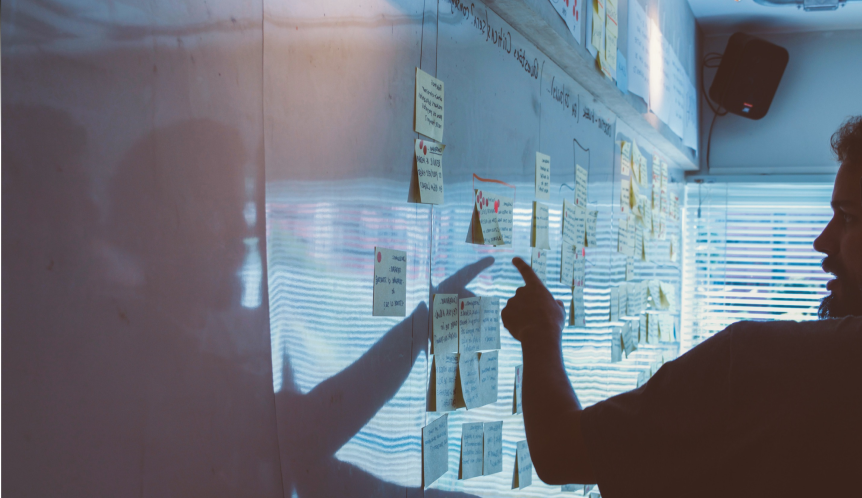A new book suggests people find greater well-being when they value time over money.
There’s an old adage, “Time is money.” It implies that being idle is a waste of time and will lead to less success in life.

But researcher Ashley Whillans of the Harvard Business School suggests that this is the wrong way of thinking. In her new book, Time Smart, she argues that prioritizing making more money over valuing our time has severe consequences that many of us underestimate. By understanding social science research better, she argues, we can start making smarter decisions around our time that will help us lead happier lives.
Being “time smart” means not overscheduling ourselves, avoiding things that suck our time but provide little happiness or meaning, and making everyday decisions (and bigger, life-changing decisions) while keeping in mind the costs of lost time—from how we interact with our devices to which jobs we choose.
“All of these decisions powerfully shape the happiness we derive from moments, from days, from our entire lives,” argues Whillans.
Her research and others’ have found that people who value their time and treat it seriously are happier, are more satisfied with their jobs, and have better social connections and intimate relationships. Perhaps this is why they have the energy and time to be “prosocial”—to do things like notice the suffering of others and take time to help, or recycle and compost for the benefit of the planet.
“By focusing on time, you can contribute to the happiness of family, friends, coworkers, your community, and the planet,” she writes.
Avoiding time traps
Many of us still fall prey to what Whillans calls “time traps,” ways of thinking and behaving that keep us from having more time. Prioritizing money over time is a major one, where we mistakenly believe that money buys time and happiness and spend all our free time trying to be productive. Other traps include things like:
- Undervaluing time: not understanding how key time is to our happiness and not being willing to invest in saving it.
- Busyness as status: staying busy in order to appear important and reap the social rewards.
- Technology: not realizing how much time and attention it takes away from us every time we answer a text or read our Twitter feed. Incessant scrolling through social media can seem innocuous but actually tends to lead to more unhappiness.
- Idleness aversion: being uncomfortable with boredom or not being able to find joy in the present.
- The “Yes…Damn!” effect: making commitments for the future because you wrongly anticipate that you’ll have more free time later.
Of course, understanding these traps doesn’t mean we will always make time-smart choices. Whillans’s goal is not to offer an all-or-nothing proposition, but to increase awareness and nudge us toward valuing time a bit more.
She encourages some simple hacks to find more time in our lives, too. Not literally, of course, as we all have the same amount of time—but to feel as if we have more time. For example, she suggests things like turning off your cell phone for a day to avoid being distracted from the present moment during fun activities; spending more time savoringthings, including our food (and not rushing through meals); and engaging in awe-inducing experiences, which help expand our sense of time.
She also suggests considering more carefully your big life decisions—like taking a new job or moving to a new city—and thinking less about salary increases or “getting more for your money” than about how these decisions might make you time-poor. With that calculus, a 3,000-square-foot house with an hour commute to your job may look less appealing than keeping your 1,500-square-foot apartment where you can walk to work. So might a career change that comes with a higher salary but longer hours.
To help readers better understand their decisions around time, Whillans provides worksheets for reflecting on personal values, monitoring behavior, and calculating the cost/benefit ratio of freeing up time. Calculating actual time lost commuting (a near-universal detractor from well-being), for example, might encourage people to consider asking their boss for a weekday to work from home, walking or biking to work, or listening to an audiobook while stuck in traffic. Or it might help people realize that getting the “best bargain” when making a purchase might not be worth the time it takes to research it or drive across town to save $.02/gallon on gas.
Can everyone be time-smart?
Whillans also advises people to consider outsourcing chores or responsibilities that don’t bring them happiness—a sort of “Marie Kondo” approach. That highlights one of the weaknesses of the book, which she tries to address. She says that even those without means can make decisions that value time more than money and find more happiness. But, while her recent study may suggest this is so, it seems that much of her practical advice would have limited utility for people facing financial struggles. If you have to choose between spending your income on food or needed medicine, for example, you won’t necessarily be able to hire a housecleaner.
Part of the problem are systemic issues that contribute to time poverty. Many workplaces have policies that could use tweaking, she argues—perhaps having fewer, shorter staff meetings, requiring less paperwork that people have to do on top of their normal work, or incentivizing people to take their allotted vacations. Government institutions could also provide social supports that free people to spend more time with family or make bureaucracy less time-intensive—for example, registering people to vote automatically when they receive their driver’s license or simplifying applications for food stamps or other aid.
Her arguments for increasing time affluence mirror those made by other researchers, who suggest we need work and government policies that prioritize well-being over profits or GDP.
“We need to acknowledge the real and significant costs associated with the cultural obsession with financial growth: rising health care costs, an inability to retire that creates a lack of growth avenues at work, and a dearth of social participation,” she writes.
Still, recognizing the limits of changing government mindsets, her book mostly focuses on individuals. She hopes that by convincing us all to value time more, the idea will spread.
“It starts with becoming time smart, recognizing the profound effect that this transformation has on you, and then demanding that others respect and accommodate your approach to your time.”






